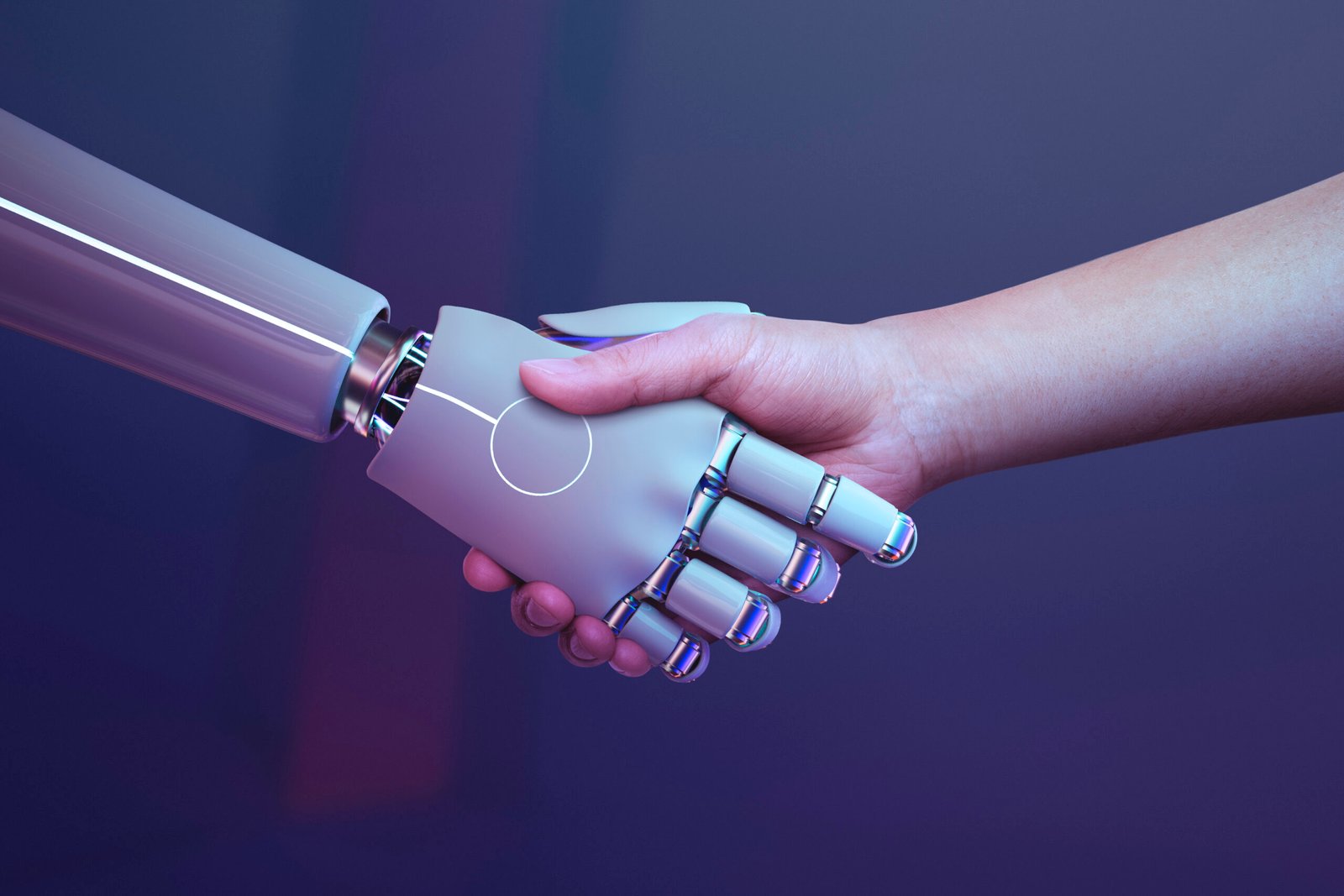The question on everyone’s lips these days seems to be: will robots take all our jobs? Everywhere one turns, panic-mongering reports warn of mass unemployment as artificial intelligence progresses and machines grow ever more capable. I say such fears are overblown and reveal more about the character of our times than they do about the actual prospects for robotics. Let us examine this issue with careful reason instead of frenzied speculation.
The limits of robots

While robots continue to advance by leaps and bounds, their capabilities remain severely limited compared to human flexibility, creativity and common sense. Programs can now beat us at chess or Go, calculate vast equations in the blink of an eye, and perform repetitive physical tasks with precision. However, core human attributes like compassion, judgment, abstract thought and emotional intelligence long elude even our most sophisticated creations.
Skeptics rightly point out robots’ profound inability to handle complex, unstructured problems requiring social or cultural awareness. No AI can write a song, paint a masterpiece, tell a joke, comfort a crying child or think outside prescribed parameters as humans do. Our mental faculties grant us a versatility, sensitivity and general wisdom that computer systems, for the foreseeable future at least, can only aspire to mimic in narrow slices.
Furthermore, developing sophisticated robots requires vast investments and experienced engineers, limiting how quickly machines can actually permeate our lives and workplaces. New occupations also tend to emerge as old ones transform, usually in combination with, not replacement of, human jobs. Substitute alarmism with sober analysis, and fears of technological unemployment appear misplaced.
The human advantage
Rather than fearing automation, wise societies recognize people’s unique strengths, partnering machines with jobs emphasizing human attributes. Creativity, compassion and strategic thinking remain our core advantages over any program. Policies encouraging lifelong education help individuals adapt skills for an evolving economy, keeping pace with, not retreating from, technology.
Singapore exemplifies this progressive mindset. Rather than resisting automation, the city-state embraces it, freeing citizens from mundane tasks and moving them toward higher-value roles. Robust job training and pioneering “skills futures” initiatives empower Singaporeans to stay relevant and in demand. For individual resilience, nothing replaces a well-rounded character and a versatile education emphasising soft skills above rigid specialisation.
Mass unemployment? Far from inevitable
History shows previous waves of innovation created more, not fewer, jobs overall by opening new industries. The steam engine didn’t throw agricultural workers onto the streets en masse; it raised living standards across Britain through expanded economic activity. Likewise, programming promises immense benefits by reducing drudgery and unleashing untold possibilities if we thoughtfully guide progress.
Sensationalists propagate misguided zero-sum thinking as if there exists a fixed number of positions to distribute. Creative destruction forges ahead regardless, and those willing and able to innovate fill needs the next generation can barely conceive of. Doom-mongers also overlook how elderly care, social services, the arts, and other “human” fields flourish as societies grow richer.
Will some regions face short-term dislocations? Of course. But long-term unemployment requiring universal basic incomes, as claimed, results more from a lack of imagination, community spirit, and retraining support than from intrinsic faults in advancing work itself. With open minds and prudent policies, technology needn’t spell widespread job loss as much as liberation to higher pursuits.
Tips, resources and case studies
For individuals, staying informed on emerging trends helps anticipate careers poised for growth. Platforms like Anthropic highlight the latest AI developments and debates, helping to separate hype from reality. Sites like Fast Future compile expert forecasts on which jobs machines can and cannot replace, advising career flexibility rather than panic.
For inspiration amid change, history abounds with figures adapting continually for success, like the entrepreneur who switched from typewriters to computers, keeping a workforce employed through several technology shifts. Their stories prove transformation is less threatening than tabloid headlines imply.
Singapore’s SkillsFuture initiatives represent a comprehensive government response, encouraging citizens to specialize while also diversifying skillsets transferable industry to industry. The UK and EU could learn from Asia’s balanced emphasis on both technical and “soft” competencies that power lifelong employability.
Overall, facing new technology need not dissolve society into masses of displaced workers. With wisdom, will and well-designed support systems, people can instead leverage automation toward greater prosperity, fulfillment and control over our own destinies. But achieving this brighter future requires separating fact from fiction in analyzing machines’ true capacities—and ours.
In summary
While AI continues to storm ahead, fears of mass unemployment caused by robots replacing human jobs remain overblown. Robots’ limitations in areas like creativity, compassion and common sense ensure most occupations demand a human touch for the foreseeable future. Throughout history, new technologies created more jobs than they destroyed by opening new industries, and future trends suggest a similar outcome if societies guide progress judiciously. With strategic education emphasizing versatility over rigid specialization, people stay adaptable to changing work and technology becomes an engine of liberation rather than a threat. Overall, facing new challenges with reason over reaction positions both individuals and nations to leverage opportunities wherever innovation leads.
Key takeaways
- Robots’ capabilities, while impressive, still fall far short of human flexibility, creativity, and emotional intelligence. Most jobs require traits only people possess.
- History shows new technologies create more jobs than they destroy as whole new sectors emerge. Technological unemployment fears typically prove overblown.
- Rather than resist change, wise societies recognize humans’ enduring advantages and partner people with machines, guiding citizens toward higher-value roles through robust retraining systems.
- Individual resilience relies on a well-rounded, versatile education emphasizing transferable “soft” skills to stay adaptable through myriad industry shifts. Continual learning prepares people for future, unknown jobs.
- With open and supportive policies, technology need not mean widespread job losses so much as liberation of society to new, higher pursuits as automation reduces dull, repetitive work. A balanced and fact-based perspective calms fears of a jobless future.
Here are some valuable resources for further exploring the topics discussed in the article:
Anthropic is a cutting-edge AI safety startup working to ensure advanced AI systems are beneficial to humanity
Fast Future: A site from Anthropic that provides expert forecasts on which jobs are most likely to be displaced or enhanced by technology
World Economic Forum: The WEF publishes extensive research and analysis on how jobs will transform in response to emerging technologies
Pew Research Center: Pew conducts public polls and surveys on attitudes toward technologies like AI and robots. Valuable data for understanding perceptions
Our World in Data: This site from Oxford University presents statistical data and historical context around topics like technology and employment trends
Brookings Institution: independent policy research covering economic impacts of automation and policy best practices around job training and re-skilling
Singapore SkillsFuture: Singapore’s highly regarded national program encourages lifelong learning and skills upgrading
World Economic Forum: Guides on digital skills and jobs of the future to help individuals stay adaptable
University of Oxford: Research from Oxford on the future of work, with some studies available freely online
I hope these additional resources provide valuable avenues for further exploration of jobs, skills, and policy trends related to emerging technologies. Please let me know if any other types of references would be helpful.




Leave a Reply